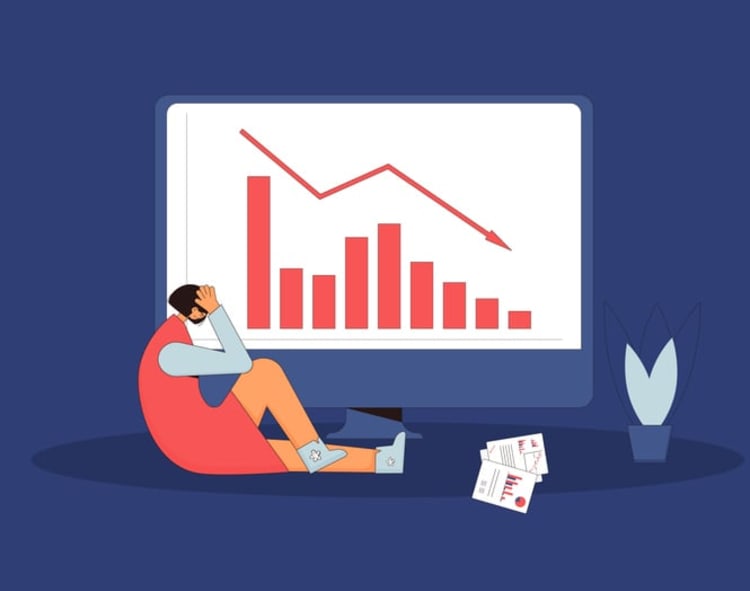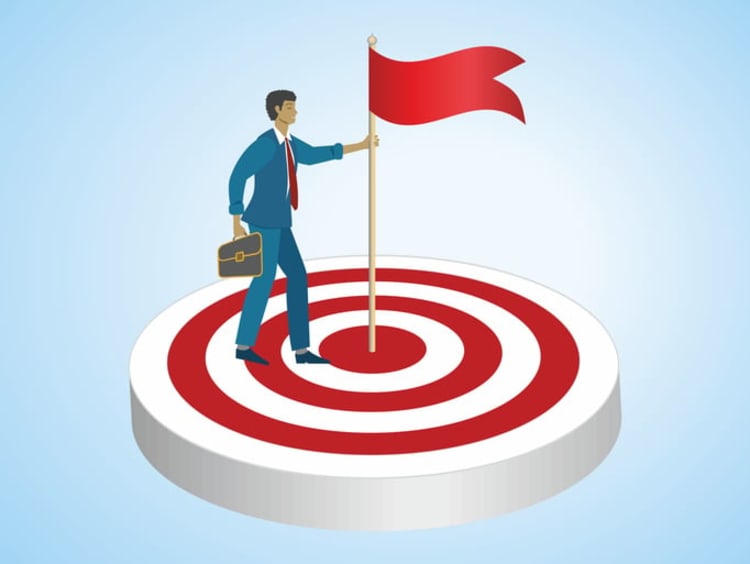When sales burnout threatens your team's peak performance, immediate action is needed. This article dives into recognizing burnout signs and arms you with a toolkit to prevent burnout from eroding your team. Expect to gain insights into recognizing burnout's symptoms, understanding its costs, and implementing effective solutions. Among these solutions, leveraging coworking virtual spaces like Kumospace emerges as a promising approach to revitalizing remote sales teams, offering a novel way to rejuvenate team spirits and enhance their effectiveness.
Key Takeaways
- Sales burnout, with symptoms like lack of motivation and decreased productivity, has significant costs for companies, estimated at around $190 billion annually due to lost productivity and high turnover.
- To prevent sales burnout, strategies such as creating open and supportive work cultures, prioritizing rest, balancing daily task loads, and shifting towards a consultative approach are necessary. Additionally, platforms like Kumospace might serve as valuable tools by providing virtual spaces that encourage teamwork and support, potentially easing the stress associated with remote sales activities.
- Sales management plays a critical role in preventing burnout through mental health training, setting realistic goals, recognizing successes beyond closing deals, and integrating well-being into the sales environment.
The reality of sales burnout

Burnout in sales teams is a widespread challenge in the corporate world, often likened to a silent epidemic due to its profound but understated impact. The intensity of continuous sales calls and relentless targets can cultivate a dysfunctional work environment. Prolonged exposure to such high-stress conditions leads to burnout in even the most dedicated sales reps, negatively impacting their productivity and emotional well-being—key components for success in this field. Amidst this backdrop of high stress, the shift towards remote work adds another layer to the challenge.
While remote work offers numerous benefits, including boosted spirits and flexibility, it's not without its drawbacks. Traditional video conferencing tools like Microsoft Teams, Google Meet, and Zoom may leave some employees feeling isolated, missing those spontaneous "watercooler" moments that spark creativity and connection. Recognizing these challenges, innovative platforms like Kumospace are redefining remote work. Kumospace enhances connectivity, visibility, and culture with features like customizable virtual offices, spatial audio, and music sharing, addressing the unique burnout faced by remote sales teams. Kumospace's approach to replicating an engaging office environment helps facilitate organic communication and serendipitous interactions, crucial for maintaining team spirit and productivity. This strategic innovation in remote workplace design is why Kumospace stands out as an option to mitigate burnout, as highlighted by FlexOs as a leading virtual workspace solution.
Picture your sales team drained of enthusiasm and energy, seemingly going through the motions with a detached sense of duty. This is the stark reality that emerges in the wake of burnout. Sales reps often face overwhelming stress, not because of personal failings, but due to demanding workloads set against ineffective environments and weak support structures. Imagine being in an office, constantly interrupted with no space for focused work, or isolated at home, navigating day-long Zoom meetings without real interaction. It highlights a critical crossroads for companies: those remaining in-office must innovate to maintain engagement, while remote operations should invest in creating vibrant virtual offices for their teams. Prioritizing our workforce's well-being is not just important—it's crucial.
We must address these problems head-on if we are determined not only to avoid losing our talented personnel but also to replenish vitality among those affected by professional exhaustion within our ranks.
Identifying burnout in sales reps
Sales representatives frequently exhibit burnout through symptoms such as:
- Diminished enthusiasm for work
- A drop in output levels
- Withdrawal from active participation
- Pessimistic outlooks
- Persistent tiredness, even with sufficient rest
How can we pinpoint the early onset of burnout?
Unlocking the secret to preventing burnout hinges on spotting its earliest signs. Identifying these signals early on is key. The challenge in catching burnout early lies in its subtlety and gradual onset. Early signs are often overlooked because they're not as pronounced, making them difficult to recognize. This subtleness is precisely why early detection is tricky but important. Many employees might not even realize they're on the path to burnout, experiencing it in a slow, creeping manner.
We're here to guide you in identifying these nuanced signals before they escalate, ensuring your team remains positive and engaged. When sales reps start showing signs of being overwhelmed, losing their drive, and becoming disengaged, it’s time to act fast. Sales managers need to be vigilant about these symptoms and take preventive steps to shield the sales team from the debilitating effects of burnout.
Here are some immediate and preventative actions that sales managers can take:
Immediate Actions:
- Offer personal days specifically for mental health and relaxation.
- Introduce flexible working hours to accommodate personal schedules.
- Implement regular one-on-one check-ins focused on well-being, not just performance.
To prevent future occurrences:
- Establish a mentorship program for continuous support and guidance.
- Provide access to professional development resources focused on stress management.
- Create a recognition program that celebrates not just sales achievements but also team contributions and individual resilience.
These actions swiftly confront immediate challenges while paving the way for a resilient and nurturing team culture.
The high costs for companies
Burnout not only triggers a personal health emergency, it also precipitates an economic crisis for businesses. It’s astonishing that burnout leads to organizational expenses of around $190 billion annually as productivity plummets, workers take more sick days, and employee turnover soars. The ripple effect begins with the individual sales representative and quickly impacts the entire organization’s performance levels, income streams, and staff retention.
Mental health degradation stemming from burnout carries its own financial consequences. On average, each affected salesperson contributes roughly $2,469 in related costs due to impaired mental well-being every year. When an employee underperforms because of burnout symptoms, this can result in a loss equaling about 34% of their annual salary for the company they work for. Consequently, the real issue at hand is whether companies can actually afford not to enact measures aimed at preventing burnout rather than debating if such interventions are financially feasible.
The Kumospace approach to preventing burnout

As we tackle the challenge of sales burnout, Kumospace emerges as a strategic ally, providing essential tools to combat and prevent burnout effectively. Kumospace’s remote-first mindset helps prevent burnout by implementing community-building features that support remote work.
The sales industry can sometimes foster a competitive and often isolated atmosphere due to its focus on individual targets and commissions. This environment can exacerbate feelings of separation, especially among remote sales professionals who lack the daily, in-person interactions that build camaraderie and support. The emphasis on personal achievement over team success can make sales roles particularly challenging, contributing to burnout by isolating individuals from their peers and the collective culture of their organizations. By leveraging features like customizable virtual offices, spatial audio for natural conversation dynamics, and event spaces for team-building, Kumospace actively combats the isolation and burnout common among sales professionals. This strategic focus on fostering engagement, fun, and a supportive network addresses the unique pressures of sales roles, promoting a culture of communal success and teamwork, which is critical in alleviating burnout and enhancing overall team vitality.
Detailing Kumospace’s features:
Customizable Virtual Offices: This feature lets you personalize your virtual workspace down to the details—choose your desk, chair colors, and even the artwork on the walls to make your online office feel uniquely yours.
Spatial Audio: Implements audio dynamics where the volume of voices changes based on avatar proximity, enhancing the realism of conversations.
Event Spaces: Kumospace offers a variety of themed event spaces, such as music rooms, pools, discos, cocktail hours, beaches, and cafes. While some options might require purchase, these customizable spaces provide diverse settings for any team event.
Encouraging open communication

Kumospace provides a venue that encourages natural communication within teams, making sure every sales rep is able to experience those organic “watercooler” conversations that are indispensable to the workplace.
Taking time to check in with team members about their personal well-being and plays a vital role in recognizing employee contributions beyond mere sales figures. The goal extends beyond merely closing deals. It includes cultivating a work setting that’s not just productive, but also affirming and supportive. Most of which would not be possible remotely without the use of Kumospace’s innovative spatial audio technology.
Cultivating a supportive culture
Nurturing a culture that acts as fertile ground for each sales representative to flourish is the ethos at Kumospace.
They place great emphasis on promoting individual well-being and leisure time by allowing users to play in-app interactive games as well as host events and social mixers in custom virtual offices.
Their strategy for staving off burnout includes:
- Celebrating team members’ successes
- Coordinating communal activities
- Utilizing technology to make workflows more efficient
- Creating a nurturing workplace community
Through these initiatives, Kumospace constructs a barrier against the crippling consequences of burnout, thereby safeguarding employees from reaching a state of exhaustion and mitigating excessive energy output.
Recharging strategies for sales professionals

In the sales marathon, it’s vital for sales professionals to take regular breaks for hydration. Recognizing the need to take a break and set boundaries are crucial self-care practices in preventing burnout. From flexible working arrangements and regular breaks to engaging in hobbies that provide a sense of accomplishment, these strategies act as a protective buffer against burnout.
Sales professionals are not machines; they cannot function optimally without regular rest and relaxation. Aerobic exercise has positive effects on mental health, such as reducing stress and improving mood, which are beneficial for sales professionals. Engaging in mindfulness and stress management techniques, such as meditation and deep breathing exercises, can also help alleviate burnout symptoms.
Prioritizing wise rest
In the dynamic field of sales, it is all too easy to overlook the vital role that rest plays. It should be considered not as an indulgence but rather a fundamental need. Salespeople must treat wise rest as an essential part of their daily schedule by incorporating several practices such as taking brief breaks on a regular basis, adhering to sleep patterns providing six to eight hours nightly, embracing occasional naps if needed, and adopting mindfulness along with techniques for managing stress.
Attaining a more balanced work-life relationship can be possible even when engaged in your dream job. This balance could involve maintaining consistent times for starting and ending workdays, following steady exercise routines, purposefully disconnecting from both work responsibilities and screens during downtime periods—and, importantly, pursuing hobbies or activities that bring fulfillment and happiness into one’s life.
It’s crucial to understand that opting for rest does not reflect feebleness. Instead, it demonstrates sagacity. Embracing prudent resting habits serves as an effective defense mechanism against job-related exhaustion or burnout.
Balancing daily tasks

Professionals in the field of sales often find themselves performing a high-wire act with their multitude of obligations and duties. The antidote to staving off burnout Is rooted in managing these tasks effectively. By embracing asynchronous communication, salespeople can enjoy more flexible interactions that decrease the immediacy for responses, thus mitigating feelings of being overwhelmed. Sales staff can better navigate their day-to-day by methodically prioritizing activities based on actual time demands, utilizing intervals for rejuvenation, monitoring the progression of assignments diligently, and aligning daily tasks with personal proficiencies.
Regular examination of the sales process allows for pinpointing opportunities to refine or implement automation techniques that foster setting achievable targets while diminishing symptoms associated with burnout.
Tactics to reduce exhaustion:
- Assigning lesser priority responsibilities elsewhere and requesting support where necessary to equalize workload.
- Employing efficiency-enhancing tools like Gsheet personal assistants.
- Promoting self-governance when organizing one’s everyday chores.
Implementing these tactics will enable representatives within the realm of sales not only to ward off fatigue but also bolster overall productivity levels.
Empowering sales managers

The crucial role of sales managers in averting burnout cannot be overstated. By harnessing appropriate strategies and tools, they are well-placed to ward off burnout within their teams while nurturing an environment that’s both encouraging and efficient. Mental health training is key, as it arms sales managers with the necessary skills to maintain a supportive and healthy work atmosphere.
What Does Mental Health Training Look Like?
- Awareness Sessions: Interactive workshops designed to educate managers on recognizing the signs of burnout and mental health issues, emphasizing empathy and understanding.
- Communication Skills Development: Training on how to initiate sensitive conversations, providing techniques for effective and compassionate dialogue with team members.
- Stress Management Techniques: Teaching practical strategies for managing stress, including mindfulness, time management, and prioritization skills.
- Crisis Intervention Training: Preparing managers to respond swiftly and appropriately to mental health crises, ensuring they can guide employees to professional help when needed.
- Building Resilient Teams: Workshops on fostering resilience within teams, including creating a culture of support, encouraging work-life balance, and promoting positive coping mechanisms.
When sales managers provide ongoing, positive feedback, it uplifts team morale and contributes to steady performance levels. t. The focus isn’t solely on driving sales reps towards goals. Rather, it’s about enabling them with confidence and optimal conditions for success. Fair motivational compensation structures ensure that members of the sales team exert sustained effort without falling prey to feelings of overwhelm or exhaustion.
Training focused on managing stress effectively allows those in sales roles to better handle emotional labor.
Setting realistic goals

Goals in sales must strike the right balance between aspirational and achievable, ensuring they push the team but also take into account their mental load and bandwidth. These targets should dovetail with overarching corporate aims so that every individual’s contribution propels the business forward.
Effective sales goals must be:
- Clearly defined
- Quantifiable
- Within reach
- Pertinent
- Time-sensitive
To establish feasible sales benchmarks, these targets ought to be grounded on concrete KPIs and metrics from within the realm of sales—criteria that are rooted in evidence and constructively guide toward triumph. By setting realistic expectations, those engaged in selling can develop manageable agendas that circumvent being swamped by tasks.
It falls upon sales managers not just to instruct, but also equip their teams with necessary skills and assets essential for achievement within their role as sellers. This includes the dispensation of training programs along with any pertinent tools or resources required.
Recognizing success beyond closing deals
In the realm of sales, the ability to close deals often marks the threshold of success. Yet there’s more to it than just sealing transactions. The act of acknowledging victories in sales is vital, as it maintains motivation during times when stress levels might escalate. It is important not only to revel in significant milestones but also acknowledge incremental progress on a weekly basis for consistent growth within the business.
Key elements for driving engagement and performance:
- Motivation
- Excitement
- Openness
- Acknowledgment
These elements are pivotal for securing an increasing number and scale of deals. Utilization of visible public recognition tools like Leaderboards serves as a means to openly celebrate accomplishments in sales, thus inspiring individuals across an enterprise.
Transforming the sales environment

In the quest to tackle burnout within sales teams, a fundamental change is required in the approach to selling. This involves moving away from aggressive sales strategies towards a consultative style of selling that prioritizes identifying and addressing customer needs. By conducting comprehensive research prior to a sales call, and sharing pertinent insights with customers, sales representatives can offer unique value.
Emphasizing trust-building and comprehension through this consultative method leads not only to better retention of customers but also to higher conversion rates. Creating an organizational culture that recognizes collective achievements supports employees’ work value perception while decreasing instances of burnout by highlighting both team-based and individual accomplishments.
To foster sustainable growth in sales, it’s crucial to redefine success to include mental well-being alongside traditional performance metrics. This approach emphasizes the importance of qualitative achievements over purely quantitative ones, recognizing the holistic progress over time. Implementing strategies focused on mental health can mitigate the negative impacts often faced in high-pressure sales roles, such as burnout from excessive demands or social pressures. These changes not only benefit the individual by enhancing their ability to communicate effectively with clients but also contribute to a healthier, more productive professional environment. It's vital to acknowledge that the repercussions of neglecting mental well-being in sales can extend beyond the individual, affecting the broader ecosystem in which they operate. Taking timely and appropriate action to address these challenges ensures the long-term vitality and success of both sales professionals and the organizations they represent.
Redefining the sales role

Adaptability is key in the ever-evolving world of sales, which is increasingly moving towards a consultative selling approach. Here, salespeople act as trusted advisors, offering more than just product information; they provide comprehensive solutions based on in-depth research, tailored inquiry techniques, and a deep understanding of the customer's unique challenges. This method focuses on a customer-centric experience, emphasizing problem identification, education on relevant issues, and strategic problem-solving, all while fostering trust through customized solutions for each client.
Embracing consultative selling principles helps create a supportive environment that reduces psychological stress on sales teams. This approach not only enhances the customer experience but also contributes to a healthier workplace culture, effectively reducing burnout risks and promoting well-being among sales professionals.
Integrating mental health practices
Establishing a sales culture that champions mental health acts as a safeguard, preemptively shielding representatives from the grips of burnout. Fostering an open dialogue around mental health, while removing stigma, and encouraging proactive measures against burnout within work culture is necessary.
To bolster employee mental well-being, businesses—especially those in sales—should facilitate access to Employee Assistance Programs (EAPs), which provide private counseling services.
Incorporating mindfulness and relaxation techniques into break times can substantially improve outcomes for those in sales roles by:
- Elevating the rest quality
- Boosting cognitive function and emotional recuperation
- Promoting overall team welfare
These practices also play a crucial role in recognizing signs where mental health intervention may be required. Consistent monitoring through regular check-ins on employees’ mental states, as well as conducting surveys within the realm of sales teams, enable constant vigilance over collective wellness. This consistent oversight helps pinpoint specific needs related to supporting and enhancing mental health at work.
Inspirational quotes to combat burnout

In the realm of sales, where burnout often looms large, uplifting quotes can serve as beacons of hope for those undergoing great suffering. For salespeople facing adversity, Colin Powell’s insight that success is an amalgamation of preparation, laborious effort and lessons from failure underscores the importance of persistence in this career path. When resolve wanes and triumph seems distant, a nudge like ‘You are so close to victory. Don’t you dare give up now’ can invigorate one’s drive to overcome impending challenges.
Embodying perseverance in the face of seemingly insurmountable goals are Nelson Mandela’s words. ‘It always seems impossible until it’s done.’ This sentiment reinforces determination within sales teams struggling with ambitious quotas. To surmount psychological obstacles on the road to achievements Karim Seddiki reminds us that doubt extinguishes more dreams than failure ever could.
Achieving long-term success in sales looks like:
- steadfastness
- diligent preparation
- consistent hard work
- toughness amidst trials
Fostering these attributes along with gaining valuable experience shapes a triumphant trajectory for any individual pursuing a career in sales.
Summary
In wrapping up our exploration of the sales burnout phenomenon, it’s critical to understand that experiencing burnout isn’t a mandatory aspect of any sales position. By implementing proper strategies and fostering an encouraging work atmosphere, we can refresh our sales force and maintain their enthusiasm. Strategies such as promoting open dialogue, developing a nurturing company culture, ensuring sufficient rest for wise recovery and maintaining balance in everyday responsibilities are effective measures in countering burnout—leading to a more vibrant and efficient setting for conducting sales.
It is essential to keep in mind that averting burnout within the realm of sales is akin to running a marathon—it demands consistent effort from everyone involved: the individual sellers, those managing the teams, as well as entire corporations. It might be challenging, but when armed with resilience, commitment and strategic approaches, this challenge can certainly be surmounted.
As we consider the specific challenges of remote sales teams in avoiding burnout, Kumospace emerges as a particularly effective solution. Its focus on building community, enhancing employee visibility, and fostering connectedness addresses key factors that can lead to burnout. By creating a virtual space where remote teams can collaborate and engage in a manner that feels personal and interactive, Kumospace offers a platform that not only combats the isolation often felt in remote settings but also cultivates a sense of belonging and team unity. This makes Kumospace an invaluable tool in the ongoing effort to maintain a healthy, motivated sales force free from the risks of burnout. Embracing innovative solutions like Kumospace in our battle against sales burnout not only uplifts our teams but sets a new standard for sustainable success in the dynamic world of sales. Together, we can overcome sales burnout.
Frequently Asked Questions
To bounce back from sales burnout, strategize your day, pursue mentorship, and leverage top-notch sales tools. Prioritize mental health, find motivation within, and draw inspiration from fellow reps. Explore new leads, review your successful calls, and communicate with your manager. Enhance your skills by attending sales events and seeking professional advice. Prevent burnout by taking regular breaks, exercising, utilizing PTO, practicing kindness, and valuing relationships.
Certainly, the field of sales is recognized for its intense pace and elements of uncertainty. However, it is also true that, within this environment, individuals can thrive, particularly when supported by a cohesive team, effective management, and an organization committed to their success and well-being.
Various factors prompt sales representatives to leave their positions, such as the pursuit of higher compensation, insufficient opportunities for career advancement, and an inadequate balance between work and personal life. Nevertheless, a recent analysis has identified that a significant factor influencing attrition is the absence of recognition for their efforts.
The demanding nature of sales roles, compounded by the intense stress and pressure to surpass targets and meet quotas, along with a sense of accountability for closing deals, can lead to significant mental exhaustion. This challenging profession has potential repercussions on one’s mental health.
Kumospace can help alleviate sales burnout by fostering a sense of community and connection among remote sales teams. Through its customizable virtual offices and spatial audio features, it creates a more engaging and interactive work environment that combats the isolation often felt in remote settings





